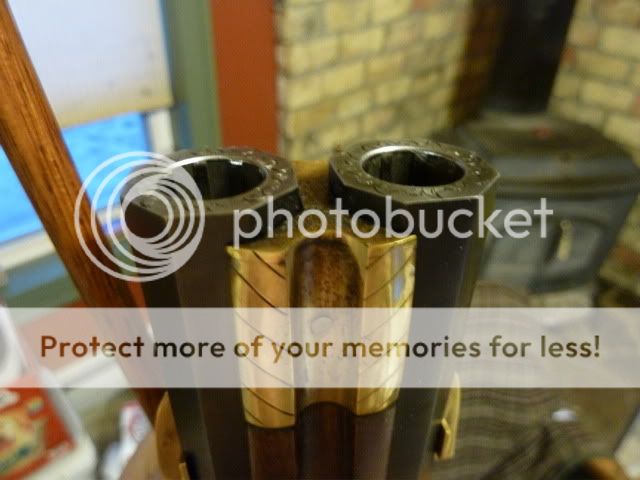- Joined
- Jan 3, 2004
- Messages
- 14,767
- Reaction score
- 319
KV Rummer said:I see a problem with a reamer. The number of flutes on the reamer is important. If the number of flutes was the same as the number of rifling grooves, the reamer could wobble when the flutes were over the grooves. You would need a reamer with at lease twice the number of flutes as there are grooves. I never saw a small dia (.500) reamer with 12 to 16 flutes.
The Wood tool looks like the most precise solution to put a taper into the rifling.
Yup. No flutes at all on the Wood tool. It's easy and effective, and I can't see any way to screw up. Took me less than two hours sitting in front of the TV, and it could have been done a lot faster if I felt like hurrying. Nah.






